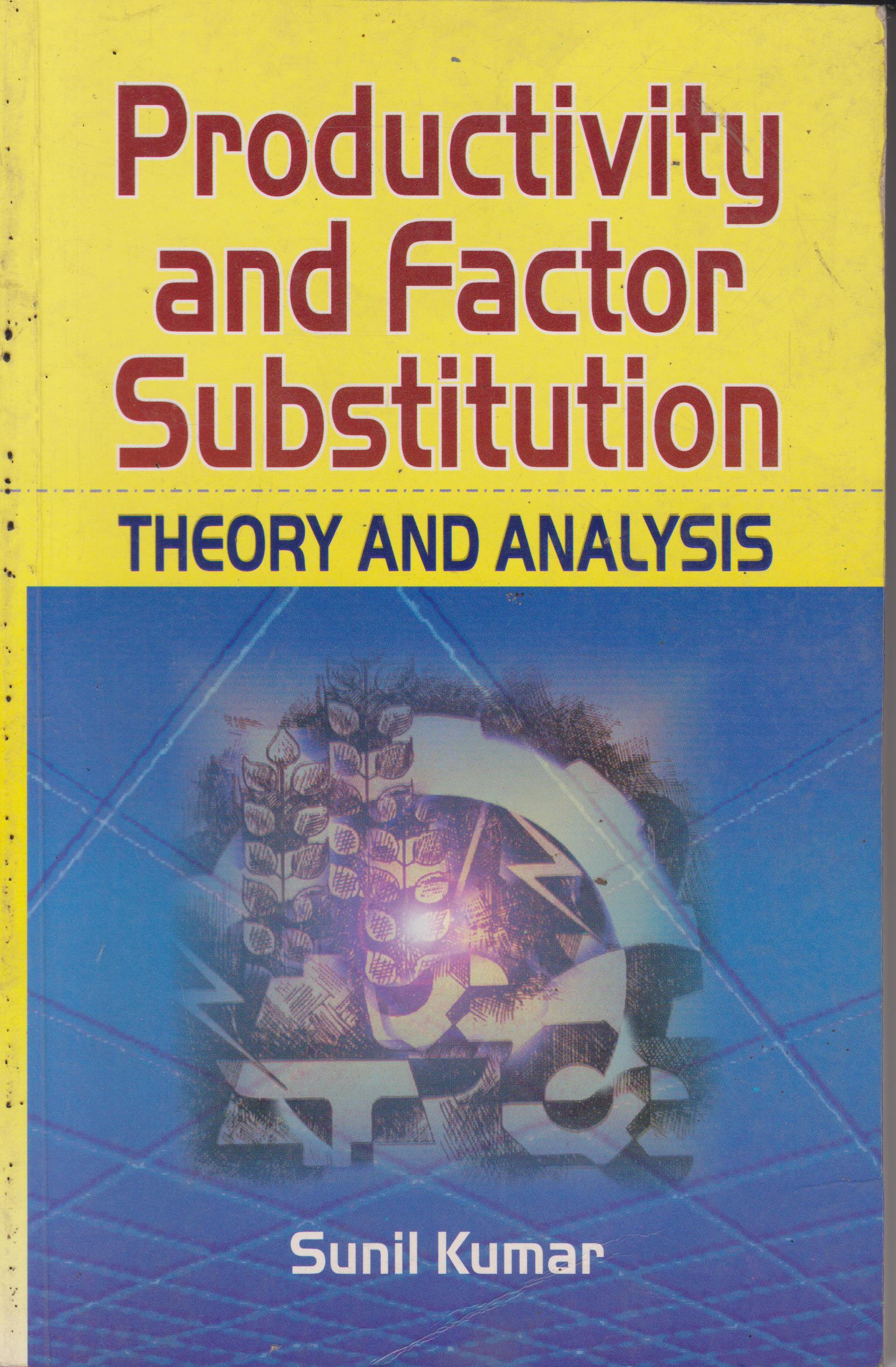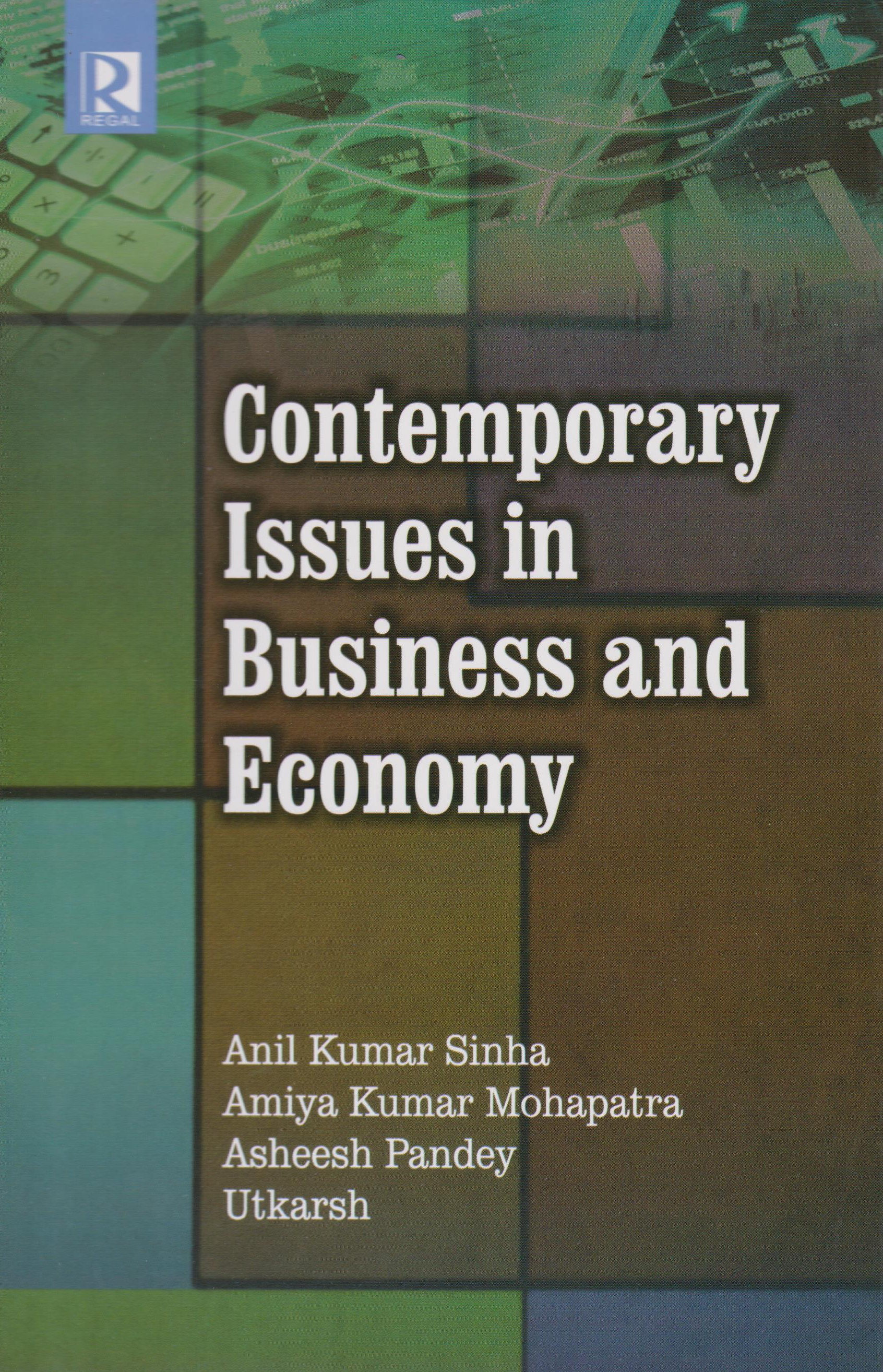Description
Productivity and Factor Substitution: Theory and Analysis by Sunil Kumar is a comprehensive and insightful exploration of the relationship between productivity and factor substitution in economic theory. In this groundbreaking book, Kumar delves into the complex interplay between factors of production, technological advancements, and their impact on overall productivity. Drawing on rigorous research and theoretical frameworks, the author presents a compelling argument that highlights the significance of factor substitution in understanding economic growth and development. With its in-depth analysis and practical applications, this book is an invaluable resource for economists, researchers, and policymakers seeking a deeper understanding of the dynamics of productivity and factor substitution.
In Productivity and Factor Substitution, Sunil Kumar presents a comprehensive overview of the theories and models related to productivity and factor substitution. The book begins by establishing a solid foundation of economic theory and the concept of productivity. It then delves into the intricate relationship between inputs of production and output, highlighting the importance of factor substitution in achieving efficiency and maximizing output. Kumar explores various theoretical frameworks, including the Cobb-Douglas production function and the constant elasticity of substitution (CES) production function, providing readers with a well-rounded understanding of the subject matter.
The author examines the determinants of factor substitution, including technological progress, input prices, and factor shares. He delves into the implications of factor substitution for economic growth and development, exploring how changes in factor prices and technological advancements impact the decision-making process of firms and the overall economy. Kumar also sheds light on the role of factor substitution in different sectors and industries, emphasizing the importance of understanding sector-specific factors to optimize resource allocation and enhance productivity.
Kumar’s book thoroughly analyses productivity and factor substitution, providing readers with a comprehensive understanding of the subject matter. The author adeptly combines theoretical models with empirical evidence, offering a balanced approach to the topic. The book’s organization and structure facilitate easy comprehension, making it accessible to both experts and those new to the field of economics. Kumar’s writing style is clear and concise, ensuring that complex concepts are explained straightforwardly.
One of the book’s strengths is its practical applications. Kumar provides numerous real-world examples and case studies, demonstrating how factor substitution affects various sectors of the economy. This approach enhances the book’s relevance and usefulness, enabling readers to apply the concepts to their own research or policy analysis. Additionally, the author’s attention to detail and thoroughness in presenting empirical evidence further strengthens the credibility of the book.
Productivity and Factor Substitution stands out from other books on the subject due to its comprehensive approach and its integration of theoretical models and empirical evidence. While other publications discuss productivity and factor substitution, Kumar’s book distinguishes itself by its clarity of presentation and practical applications. The author effectively balances theoretical concepts with real-world examples, making the book accessible and relevant to a wide range of readers.
Throughout Productivity and Factor Substitution, Sunil Kumar explores several key themes and interpretations. One central theme is the notion that factor substitution plays a vital role in achieving productivity growth and economic development. By analyzing the factors that influence factor substitution decisions, Kumar highlights the need for firms and policymakers to understand the implications of these choices for long-term economic performance.
Another theme that emerges from the book is the importance of technological progress as a driver of factor substitution. Kumar underscores the role of innovation and technological advancements in reshaping the production process and influencing factor allocation decisions. This theme reflects the ever-evolving nature of the global economy and the imperative for firms to adapt and embrace new technologies to remain competitive.
As a non-fiction book, Productivity and Factor Substitution does not have traditional characters or characterizations. However, Sunil Kumar can be seen as the driving force behind the book. As an accomplished economist and expert in the field, Kumar’s expertise and research acumen shines through in his meticulous analysis and insights. His ability to distil complex economic concepts into accessible language demonstrates his communication and educator skills.
About the Author:
Sunil Kumar is a renowned economist and academician with extensive expertise in the field of productivity and factor substitution. He holds a PhD in Economics from a prestigious institution and has published numerous articles and research papers on various aspects of economic theory and analysis. Kumar’s research contributions have garnered recognition and accolades from the academic community, further cementing his reputation as a leading authority in the field.
Kumar’s writing style is clear, concise, and accessible, ensuring that readers can grasp complex economic concepts without feeling overwhelmed. The author strikes a balance between technicality and simplicity, making the book suitable for both academic researchers and practitioners in the field of economics. Kumar’s ability to present intricate theoretical models and empirical evidence straightforwardly is a testament to his skill as a writer.
What People Say About This Book:
Productivity and Factor Substitution has received widespread acclaim from economists and researchers alike. Experts commend Kumar for his comprehensive analysis and his ability to bridge the gap between economic theory and real-world applications. The book is lauded for its clarity and accessibility, making it a valuable resource for both students and seasoned professionals in the field. Readers praise Kumar’s rigorous research and his skill in presenting complex concepts concisely and understandably.
- Comprehensive analysis of productivity and factor substitution.
- Clear and accessible writing style.
- Integration of theoretical models and empirical evidence.
- Practical applications and real-world examples.
- Relevant and up-to-date research insights.











Reviews
There are no reviews yet.